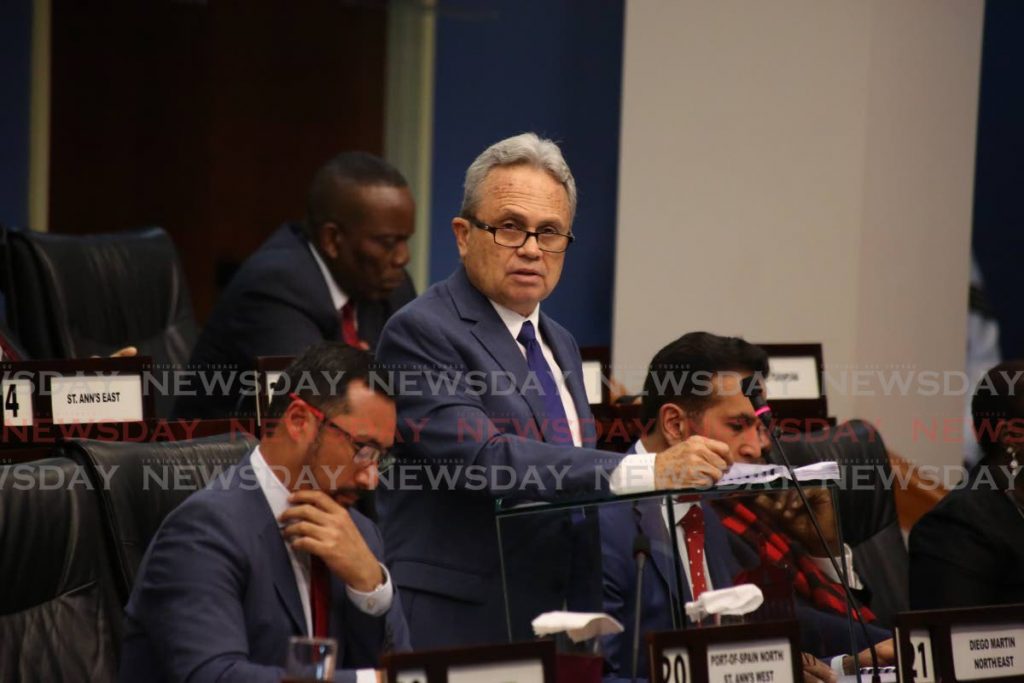Waiting for The Speech

I started listening anxiously to the budget speech being read first by Dr Eric Williams back in the 1970s and then annually by successive holders of the Finance Ministry.
I am the eternal optimist. Every year I hoped that I would hear it had been confirmed that what had been promised the year before in The Speech had been implemented in the subsequent 12 months. I even kept notes and tables and graphs that I filled in as I listened for certain developments.
For about eight years I listened for the realisation of the new cancer hospital, so sorely needed, so desperately waited for. There is an unusually high incidence of certain kinds of cancer, such as pancreatic cancer, in TT. No one seems to know why.
The budget gave many of us hope for some seven years, until it all faded out and was never mentioned again.
For almost ten years while I was in the Senate myself I sat next to Senator Prof John Spence and listened to him fight for greater emphasis on agriculture. There was a man with conviction and persistence! He never gave up until he left the Senate.
Those things he fought for we still need, now more than ever, but like the specialist centre for cancer, they never actually materialised.
While I still listen to The Speech, I no longer draw graphs or do tables comparing this year’s promises and claims of accomplishments with last year’s.
This year I will be listening with heightened anxiety. According to the Caribbean Economic Report from August of this year, TT has "a wide and growing fiscal deficit, higher debt, a grossly overvalued dollar.” The difficulty for local businesses to access foreign exchange from Central Bank, which in turn gets less and less from a declining energy sector, was noted. It noted that commerce was declining, as was government income from corporate taxes as a result.
As its income has dropped, however, public-sector salaries and emoluments that must be paid out increase.
We knew that from last year’s budget, but the pandemic lockdown of businesses not regarded as essential was unexpected, and while Mr Imbert and his Cabinet colleagues did their best to subsidise the new jobless, the pandemic has gone on and on and on.
In the private sector, minimum wages went up to $15 an hour and the number of jobs in the small business sector dropped, according to the economic report.
Well, we knew that. Domestic work, clerical positions in retail, and jobs in the hospitality and gaming industries – jobs by which many single women made a living – suddenly dropped from five or six days a week to two or three. Many of these stayed at the minimum wage rate. Formerly permanent jobs became short-term contracts.
Have you asked the cashier at your local grocery how she is paid? If her job is permanent with sick and pension benefits? Try it.
For a comparison, the average minimum wage in Canada is Can$15 an hour, which if you take it on a dollar-for-dollar basis doesn’t sound too bad. In the US the federal minimum wage is US$7.25
an hour, varying from US$7.25 in Texas to US$10.19 in Alaska, where it is harder to get workers. These are economies where one single city has twice the population of Trinidad and many times its income.
Don’t forget the values of currencies differ, but anyone living on a minimum wage in Alaska is as hard pressed to make ends meet, as is someone here. At least here we don’t have to pay for heating and winter clothes and electricity is relatively cheap. Relatively.
So what will the budget do to our wages and salaries in September? If our currency is already “grossly overvalued,” does this mean that our currency will be devalued?
Threats abound. Meaning that those on minimum wage, as their wages will certainly not go up in this pandemic era, will be able to buy fewer imported foods, baby products, schoolbooks, school shoes that are not made here? Computers for online learning?
Will Government cut back on its own staff? Charge more for water to keep an acknowledged overstaffed WASA going? Will there be fewer imported vehicles allowed ?
Or will VAT now be charged even on transactions that do not add value but just record the movement of things from one place to another?
How will elderly people on NIS pension pay for imported medicines that our hospitals require us to buy as they have run out and have no budget allocation for more? How will people on minimum wage and pension pay the threatened property tax?
Or is that all just baseless worry brought on by political rhetoric? In the 2020 budget will such fears prove baseless and will taxes remain the same out of compassion for a population already traumatised by the social and economic effects of the pandemic?
Statistics indicate that much of the reportedly high financial price of the pandemic so far may have come from the overly cautious quarantine policies, under which even people who just had a casual contact with someone who tested positive in the office next to theirs had been quarantined at government expense.
Sensibly, the minster and public health officials have now allowed such people, including the returning residents, to be quarantined at home at their own expense. TT is not the UK or Canada. We have neither the income nor the infrastructure to continue to follow all the World Bank’s varying instructions. We cannot afford another lockdown when we are still dealing with the repercussions of the last one.
We will, to recall the World War II motto, have to keep calm and carry on.


Comments
"Waiting for The Speech"